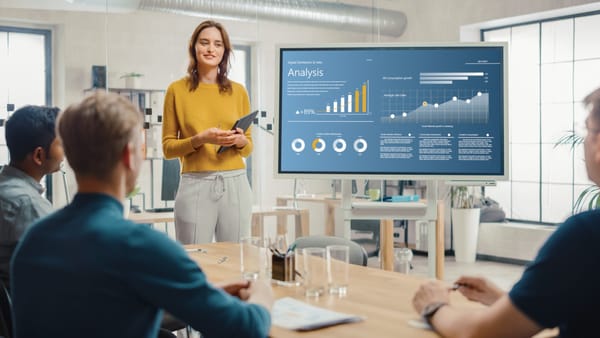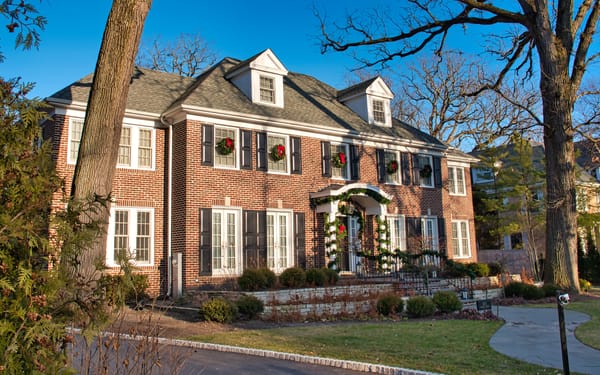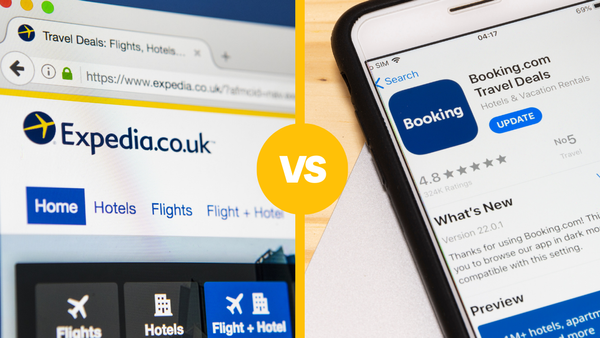Top 10 Property Tax Software Solutions for Efficient Property Management

Efficient tax compliance and full rent collection are critical aspects of commercial property management, ensuring financial stability and regulatory adherence.
In this article, we will explore property tax software and its importance and provide insights into the best commercial property tax management software available as of 2024, giving you the most up-to-date information for your property management needs.
We will also discuss tips for tax compliance and delve into other important tax rules that are crucial for property managers to understand, as well as how iGMS can help you stay ahead of it all.
What is Property Tax Software?
Property tax software is a specialized tool designed to alleviate the burden of tax season on property managers and owners, allowing them to efficiently handle property tax-related tasks.
These tasks include calculating property taxes, filing returns, managing payments, and ensuring compliance with various tax regulations.
Property tax software automates these processes, providing peace of mind by reducing the risk of errors, saving time, and ensuring accurate tax reporting.
Key Functions of Property Tax Software:
- Tax Calculation: Automatically calculates property taxes based on current rates and property values.
- Filing and Reporting: Streamlines the filing of tax returns and generates detailed tax reports.
- Payment Management: Tracks and manages tax payments, ensuring timely submissions.
- Compliance Monitoring: Keeps up-to-date with changing tax laws and regulations to ensure ongoing compliance.
- Document Management: Stores and organizes tax-related documents for easy access and reference.
Importance of Property Tax Software in Property Management
Property tax software is vital for property managers for rental property income for several reasons:
- Accuracy: Reduces the risk of human error in tax calculations and filings.
- Efficiency: Automates repetitive tasks, saving time and resources.
- Compliance: Ensures adherence to ever-changing tax laws and regulations.
- Financial Planning: Provides detailed reports and analytics to aid in financial planning and decision-making.
- Cost Savings: Helps avoid penalties and interest from late or incorrect tax filings.
Potential Downsides of Property Tax Management Software
While property tax management software offers numerous benefits, there are some potential downsides to consider:
- Cost: Advanced property tax software can be expensive, especially for small businesses or property managers with limited budgets. The initial setup fees, ongoing subscription costs, and potential add-on expenses for extra features can add up quickly.
- Complexity: While these tools are designed to simplify tax management, the complexity of some software can be overwhelming for non-tech-savvy users. This can lead to a steep learning curve and may require additional training.
- Customization Limits: Not all software solutions offer the same level of customization. Some may not perfectly fit your specific needs, requiring workarounds or additional software to fill in the gaps.
- Integration Issues: Integrating property tax software with existing systems and tools can sometimes be challenging. Incompatibility issues can lead to data migration problems and operational disruptions.
- Data Security: Handling sensitive financial information always carries risks. If the software provider has inadequate security measures, there is a potential for data breaches, which can compromise sensitive property and financial information.
- Dependency on Technology: Relying heavily on software means that technical issues, such as system outages or software bugs, can disrupt tax management processes. This dependency on technology requires reliable customer support and regular software updates.
- Compliance Updates: Tax laws and regulations frequently change. While most software providers update their systems to comply with new laws, there can be delays in these updates, which might temporarily result in non-compliance issues.
While property tax management software can streamline operations and enhance efficiency, weighing the potential downsides against the benefits is essential.
Careful selection and thorough evaluation of the software’s capabilities, costs, and support structures are necessary to ensure it meets your needs and mitigates potential risks.
The Right Property Tax Software to Improve Your Business
Choosing the right property tax filing software is a significant step towards enhancing your property management efficiency.
Commercial vs. Residential Property Tax Software
Commercial Property Tax Software: Designed for managing taxes on commercial properties, this software typically offers features such as lease tracking, advanced financial reporting, and the ability to handle complex transactions involving both multiple properties, tenants and large property portfolios. It supports intricate compliance requirements and often integrates with other business systems to streamline operations.
Residential Property Tax Software: This software is tailored to handle the tax needs of residential properties. It focuses on managing rental income, tracking maintenance costs, and providing tools for tenant communications. It often includes simpler financial reporting features and is designed to be user-friendly for smaller property portfolios or individual landlords.
At iGMS, we understand the importance of seamless integration and robust functionality. Our full property management software solutions are designed to work harmoniously with your existing systems, providing you with a comprehensive, secure, and scalable platform. Book a demo, sign up for free, or start your free 14-day trial today and experience seamless property tax management firsthand.

Considerations When Integrating Property Tax Software with Existing Systems
- Compatibility: Ensure the property tax software is compatible with your current property management system. This includes checking whether it supports data import/export and if it can synchronize seamlessly with your existing databases and tools.
- Integration Capabilities: Look for software that offers robust API integrations. These will allow different software systems to communicate and share data in real time, minimizing manual data entry and reducing errors.
- User Interface and Experience: The new software should have an intuitive interface that aligns with the usability of your current systems. A consistent user experience can reduce your team’s learning curve and promote efficient use of the software.
- Data Migration: Consider the ease of migrating data from your existing systems to the new property tax software. The software should offer tools or support for data migration to ensure a smooth transition without data loss or corruption.
- Scalability: Evaluate whether the property tax software can scale with your business. As your property portfolio grows, the software should be able to handle increased data volumes and more complex tax scenarios without compromising performance.
- Customer Support and Training: Check if the software provider offers comprehensive customer support and training resources. This is particularly important during the integration phase and for troubleshooting any issues that arise post-implementation.
- Compliance Updates: Ensure the software is regularly updated to comply with the latest tax laws and regulations. This will help you stay compliant and avoid potential legal issues.
- Cost: Analyze the total cost of ownership, including initial setup fees, subscription costs, and any additional charges for integration services. Compare these costs with the potential benefits and savings the software will provide.
- Security: Data security is paramount. Ensure that the software provider follows industry-standard security protocols to protect sensitive financial and property data from breaches and cyber threats.

Leading Commercial Property Tax Management Software
1. MRI Commercial Management
MRI Commercial Management is renowned for its comprehensive features tailored to commercial properties. It offers robust reporting tools, automated accounts payable, online bill pay, and lease templates. Although the interface is slightly dated, its extensive functionality makes it a top choice for large portfolios.
Features:
- Online bill pay
- Lease templates
- Robust reporting tools
- Automated accounts payable
- Work order management
Pricing: Contact MRI for customized pricing.
2. AppFolio Property Manager
AppFolio is highly regarded for its user-friendly interface and powerful tools, including utility management, work order management, and online rent payments. It is suitable for managing both residential and commercial properties, though it comes with a higher initial onboarding fee.
Features:
- Utility management
- Work order management
- Online rent payments
- Smart bill entry
- Automated late fees
Pricing: $1.40 to $3.00 per unit per month, with a $280 or $900 monthly minimum, depending on the plan. Contact AppFolio directly for more information and detailed pricing options.
3. Yardi Breeze
Ideal for small to mid-sized portfolios, Yardi Breeze provides a scalable solution with features like automated scheduling, robust accounting, and tenant communications. It is intuitive and offers comprehensive training materials, though it is one of the pricier options.
Features:
- Automated scheduling
- Robust accounting
- Owner reports
- Tenant communications
- Work order management
Pricing: $2 per unit per month, with a monthly minimum of $200. Contact Yardi Breeze directly for more information and detailed pricing options.
4. VTS
VTS specializes in commercial real estate leasing and asset management. It integrates marketing and sales analytics with other property management tools, making it a versatile tool for maintaining occupancy and tenant satisfaction.
Features:
- Marketing/sales-level analytics
- Tenant and inventory management
- Collaboration tools
- Mobile app
- Integrations
Pricing: Contact VTS for customized pricing.
5. CRESSblue
This cloud-based accounting software is designed for net lease properties. It provides automated leasing calculations, work order management, and detailed reporting. It is particularly beneficial for retail shopping centers and similar commercial properties.
Features:
- Work order management
- Lease abstracting and budgeting
- CAM reconciliation
- Reporting
- Asset management
- Automated leasing calculations
Pricing: Contact CRESSblue for customized pricing.
6. SKYLINE
SKYLINE offers robust features for small to mid-sized portfolios, including lease tracking, budgeting, automated scheduling, and tenant portals. It combines functionality with a user-friendly interface, though it is priced at an enterprise level.
Features:
- Lease tracking
- Budgeting
- Automated scheduling and invoicing
- Tenant Portal
- Document management
Pricing: Contact SKYLINE for customized pricing.
7. Re-Leased
Known for its ease of use and comprehensive documentation features, Re-Leased is a cloud-based solution that supports accounting, tenant communication, and compliance management. It integrates well with other business applications, enhancing its utility.
Features:
- Accounting
- Portfolio management
- Tenant communication
- Inspections
- Document storage
- Compliance management
Pricing: Contact Re-Leased for customized for customized pricing.
8. RealPage
RealPage offers a versatile platform suitable for businesses of all sizes. It features accounting, budgeting, facilities maintenance, and reporting tools and enables users to manage extensive property portfolios efficiently.
Features:
- Accounting
- Budgeting
- Facilities maintenance
- Document management
- Reporting
Pricing: Starts at $1 per unit per month. Contact RealPage directly for more information and detailed pricing options.
9. Rent Manager
This highly customizable software supports residential and commercial applications. Key features include double-entry accounting, marketing tools, work order management, and integration with various apps for enhanced functionality.
Features:
- Double-entry accounting
- Marketing tools
- Work order management
- Maintenance scheduling
- App integration
Pricing: $1 per unit per month. Contact Rent Manager directly for more information and detailed pricing options.
10. Propertyware
Propertyware provides advanced tools for optimizing profitability in real estate investments. Its features include tenant and lease tracking, property accounting, and document management. It is well-suited for real estate investors, both small landlords and large property management firms.
Features:
- Tenant and lease tracking
- Property accounting
- Document management
- Customizable reporting
- Maintenance management
Pricing: Starts at $250 per month. Contact Propertyware directly for more information and detailed pricing options.
Tips for Tax Compliance and Important Tax Rules
Filing a Tax Return for Your Rental Property
If the value of your rental income exceeds $1,000, you are required to file income taxes on it. Properly reporting rental income and deducting allowable expenses can reduce tax liability significantly. Key deductible expenses include mortgage interest, property taxes, insurance premiums, and maintenance costs.
Accounting for Rental Properties
Effective rental property accounting systems should help maximize profits by tracking investments, asset values, and depreciation. Options like Mint can streamline income and expense tracking by allowing imports and deductions from various sources, making the tax preparation process smoother.
Depreciation and Accruals
Depreciation of investment property is not a standard deduction but requires careful calculation and reporting. Tools like TurboTax can help accurately report rental property depreciation and gains, ensuring compliance with tax regulations.
Selecting the Right Software
When choosing tax software, consider factors like ease of use, feature set, compatibility with existing systems, and support options. Consulting with a CPA can provide personalized recommendations on best tax software, based on your needs and financial situation.
Stay Ahead of Tax Compliance
Selecting the right commercial property tax management software can significantly enhance your ability to comply with tax regulations and manage collections efficiently.
Leveraging advanced tools tailored to your needs can streamline operations, reduce errors, and ensure financial stability. Don’t miss out on the opportunity to simplify your processes and enhance your productivity.
Try iGMS today and experience seamless property tax management firsthand.






